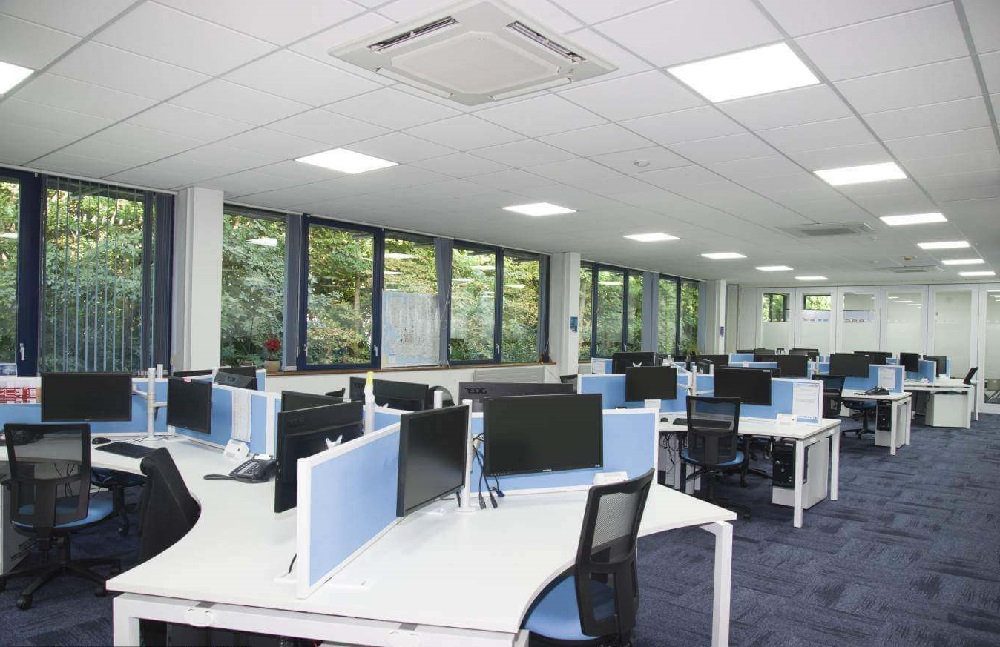What is an Office AC?
What is an Office AC?
A Comprehensive Guide to Features and Benefits

When choosing the right air conditioning system for an office, it’s essential to understand what an “Office AC” really means. Office air conditioners are specifically designed for commercial spaces, providing powerful and efficient cooling solutions to maintain a comfortable working environment, boost productivity, and improve air quality.
Key Features of Office ACs
Office AC systems come with a variety of features that set them apart from residential models. Below are some primary characteristics of an office AC and considerations that will help you select the best option.
1. High Cooling Capacity
Why it Matters: Offices often contain multiple occupants, electronic devices, and large open spaces that require robust cooling systems.
Feature Highlight: Office ACs typically have a higher BTU (British Thermal Unit) rating than home models, allowing them to cool larger spaces efficiently.
2. Energy Efficiency
Importance: Offices operate ACs for extended hours, making energy efficiency a priority to manage electricity costs.
Energy-Saving Technologies: Look for ACs with Energy Star ratings, high SEER (Seasonal Energy Efficiency Ratio) ratings, or inverter technology, which adjust the compressor speed to save power.
3. Advanced Air Filtration
Benefit: In an office, maintaining air quality is crucial for health and productivity. ACs equipped with HEPA filters or other advanced filtration systems help remove dust, allergens, and pollutants.
Feature Highlight: Many commercial ACs include air purification options, which can improve indoor air quality by filtering out airborne particles, providing a healthier workspace.
4. Noise Control
Impact: Reducing noise in an office environment ensures employees can focus and communicate without disturbance.
Low-Noise Designs: Modern office ACs often come with noise-canceling features, including insulated compressors and fans that run quietly, perfect for meeting rooms or open-plan offices.
5. Smart Controls and Automation
Convenience: Smart features allow for better control and management of office temperatures, often even remotely.
Functionality: Many office ACs come with Wi-Fi capabilities, programmable thermostats, and mobile app control, allowing you to set schedules and control temperature levels based on the office’s operational hours.
6. Durability and Long Lifespan
Why It’s Essential: Office AC units often need to handle long operational hours.
Built to Last: Commercial AC systems are designed with high-quality materials and components to withstand daily, extended use, often resulting in a longer service life compared to residential units.
Types of Office AC Systems
There are several types of air conditioning systems suitable for offices, and each type has its unique features and benefits.
Split AC Systems
Split ACs are a popular choice for offices due to their quiet operation and zoned cooling capabilities. With an indoor and outdoor unit, split ACs effectively cool spaces without producing much noise, making them ideal for both small offices and open-plan layouts.
Ducted or Central AC Systems
Central AC systems are perfect for larger offices or buildings that require cooling in multiple rooms. They provide uniform cooling through ducts and are often integrated with ventilation systems, allowing for precise temperature control across an entire floor or building.
VRF (Variable Refrigerant Flow) Systems
VRF systems are advanced air conditioning solutions ideal for offices of varying sizes. They allow for individual control in different zones, making them energy-efficient by delivering cooling only where needed.
Window and Portable ACs
While not as common in larger offices, window and portable ACs are cost-effective solutions for smaller spaces or temporary office setups. They are easy to install and can be moved if necessary.
Benefits of Using an Office AC System
Enhanced Productivity:
A comfortable office temperature contributes to a more focused and productive work environment, keeping employees comfortable and reducing fatigue.
Healthier Work Environment:
Advanced air filtration and air purification systems keep the air fresh, reducing the presence of allergens and pollutants that can cause health issues.
Improved Energy Management:
Modern office ACs come with energy-efficient features that lower electricity bills, which can be a significant cost-saving for businesses.
Convenient Control Options:
With smart features like Wi-Fi and programmable settings, office ACs offer greater convenience and control over the workspace environment.
Factors to Consider When Choosing an Office AC
Room Size and Layout
The size and layout of the office will influence the type and capacity of the AC unit needed. Larger rooms or open-plan spaces benefit from systems like VRF or ducted ACs, while smaller offices might do well with split ACs.
Number of Occupants
More people in a room generate more heat, so offices with high occupancy require a higher capacity AC to maintain a comfortable temperature.
Noise Level Requirements
Consider an AC with a low decibel rating if noise is a concern, especially in environments where quiet is essential, such as meeting rooms or executive offices.
Budget and Long-Term Costs
Look at the initial investment as well as the long-term operating costs. Energy-efficient models may cost more upfront but save significantly on monthly bills, making them a wise investment.
Conclusion
Choosing the right office AC system involves a careful analysis of your office layout, cooling needs, and budget. With options like split ACs, VRF systems, and ducted ACs, there are plenty of high-performance, energy-efficient solutions available to keep your workspace comfortable year-round. The right AC not only enhances employee productivity and comfort but also promotes a healthy work environment, which is crucial for any successful business.

